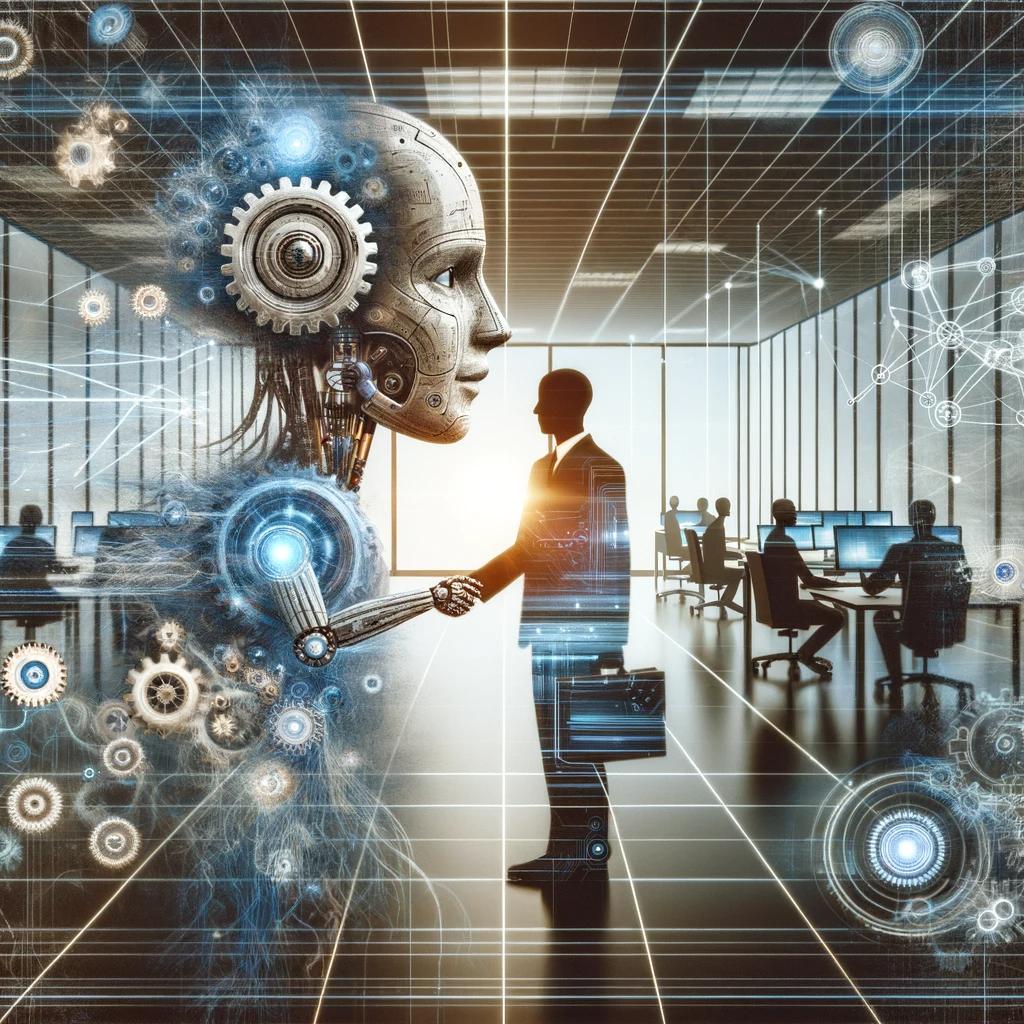Artificial Intelligence (AI) and Automation in Recruitment
Unveil the potential of these advancements to refine and enhance the talent acquisition journey.
By Chelsea McPherson
Product Manager, Cloud Shift Inc.
Read Time
5 minutes

Artificial Intelligence (AI) and Automation in Recruitment
The Human Resources landscape is undergoing rapid transformation in the post-pandemic era. Widespread layoffs and staffing shortages in many industries has flooded the market with job seekers, meaning that hiring the “right” person is, now more than ever, a challenging numbers game. Interviewing numerous candidates to find the perfect fit is time-consuming, and with businesses navigating shifting markets, changing work patterns, and work-life balance business implications, the luxury of “easy pickings” in job seekers pools is a rare commodity. This is where the remarkable potential of artificial intelligence (AI) and automation comes into play.
Traditional recruitment methods demand patience, diligence, and extensive analysis. The laborious process involves sifting through mountains of resumes, identifying potential candidates, and scheduling interviews. Unfortunately, a significant portion of these interviews often proves to be unproductive, leaving recruiters to rely on gut feelings and often, resorting to “fast tracking” to make critical hiring decisions due to time constraints.
The term “automation” can stir apprehension amongst employees, as it conjures up visions of mass layoffs and impersonal robots taking jobs. AI, with its ability to learn and develop personalities, might seem even more daunting. However, like any major change, the impact of AI and automation depends on how these technologies are implemented. When harnessed effectively, they can revolutionize talent acquisition processes, offering unparalleled efficiency, accuracy, and support for strategic decision-making.
Someone once told me that, “time taken working IN your business is time taken away from working ON your business,” underscoring the importance of focus and efficiency. AI, equipped with features designed to save time and facilitate unbiased, data-driven decisions, presents a compelling solution. Its capabilities include rapid data analysis, targeted candidate identification, objectivity, and an improved candidate experience through streamlined processes and timely feedback.
Despite these advantages, skepticism persists. Recruiters often argue that a “gut feeling” built over hours of analysis cannot be replaced by automation or AI. The potential for bias in AI is another pressing concern, raising questions about whether this technology can truly be considered “objective”. The lack of full understanding and command in this area leaves companies vulnerable to potential prejudiced recruiting practices, sub-optimal results, and potential legal ramifications.
Navigating the ethical landscape of AI utilization and the automation of human resources recruitment and talent acquisition presents several challenges for traditional recruiting practices, with discussions focusing on the role of governments and regulatory solutions. The uncertainty and tensions surrounding regulations have led major AI companies to delay entry into Canada. As businesses, it is crucial to weigh, carefully, the benefits and disadvantages of integrating AI into recruitment practices while also giving thought to the potential risks of architecting talent assessment processes enabled by artificial intelligence technologies.
Our decisions today will shape the future of the HR recruitment industry. By emphasizing transparency, strict privacy data security and unbiased algorithms, we can better capitalize on the potential of AI and HR recruitment automation in a safe, agnostic manner. Collaboration and active participation in the ongoing conversation on AI will contribute to building a consensus framework for the ethical use of this
Technology in the industry. AI and automation are more than mere buzzwords; they are tools that can support business growth and enhance our lives in ways previously unimaginable. However, acknowledging the adage, “with great power, comes great responsibility,” it’s crucial to retain the human factor in recruitment.